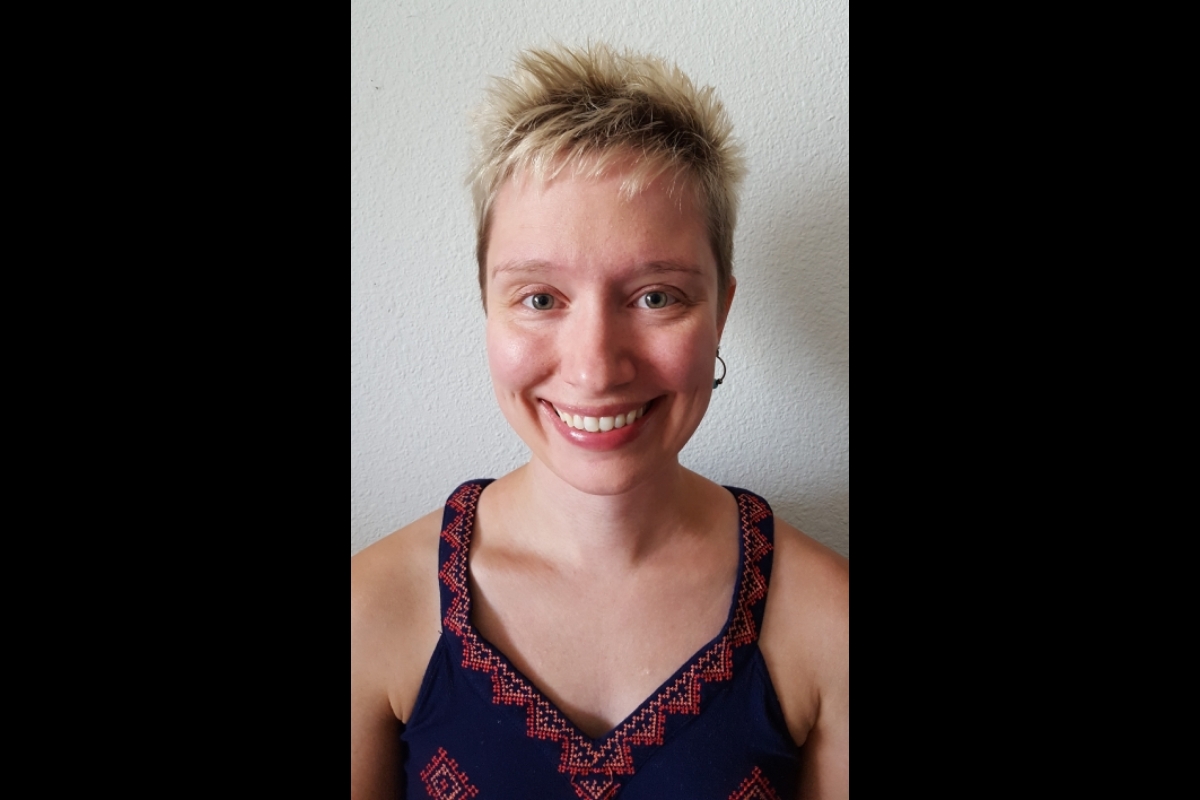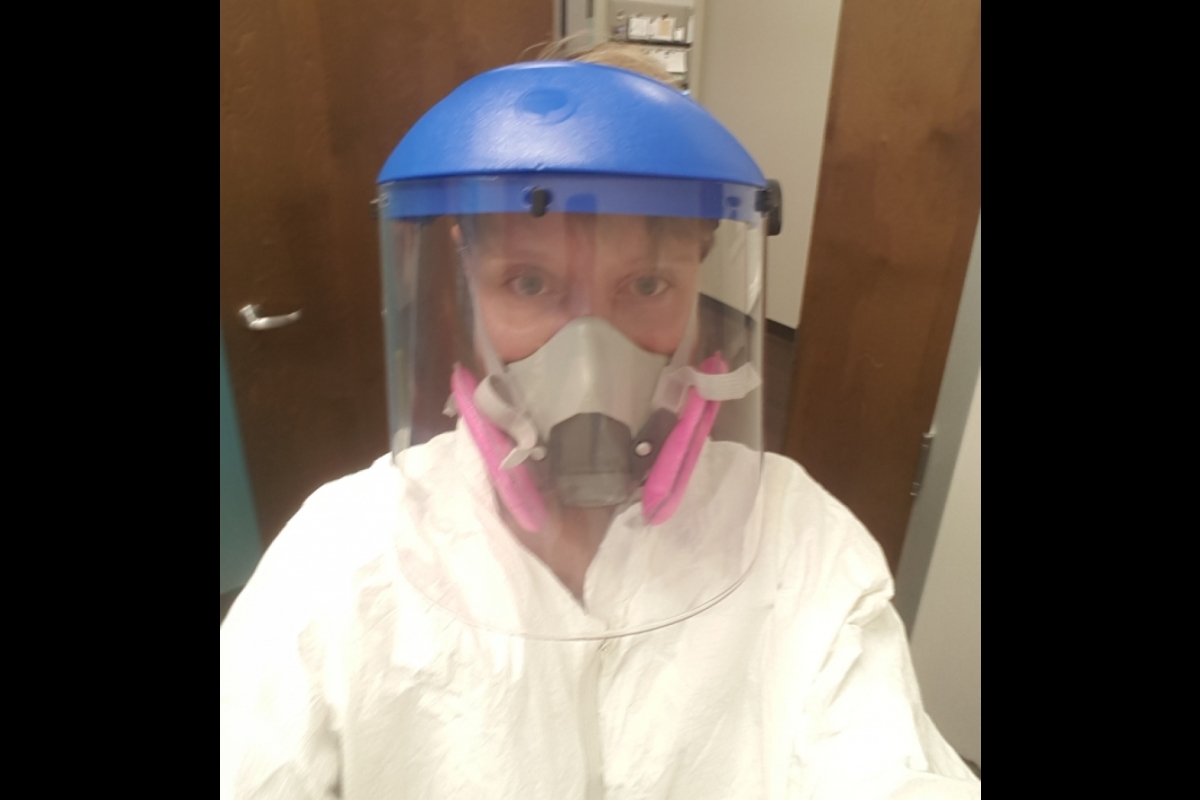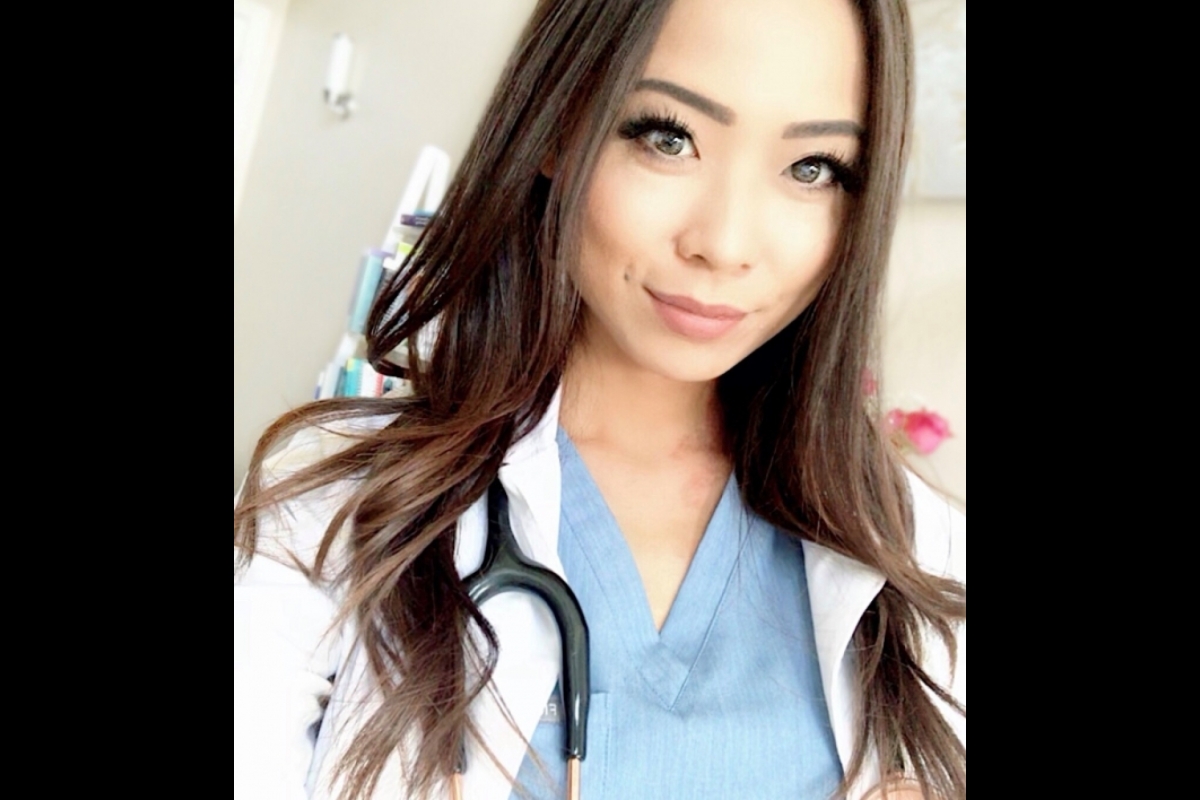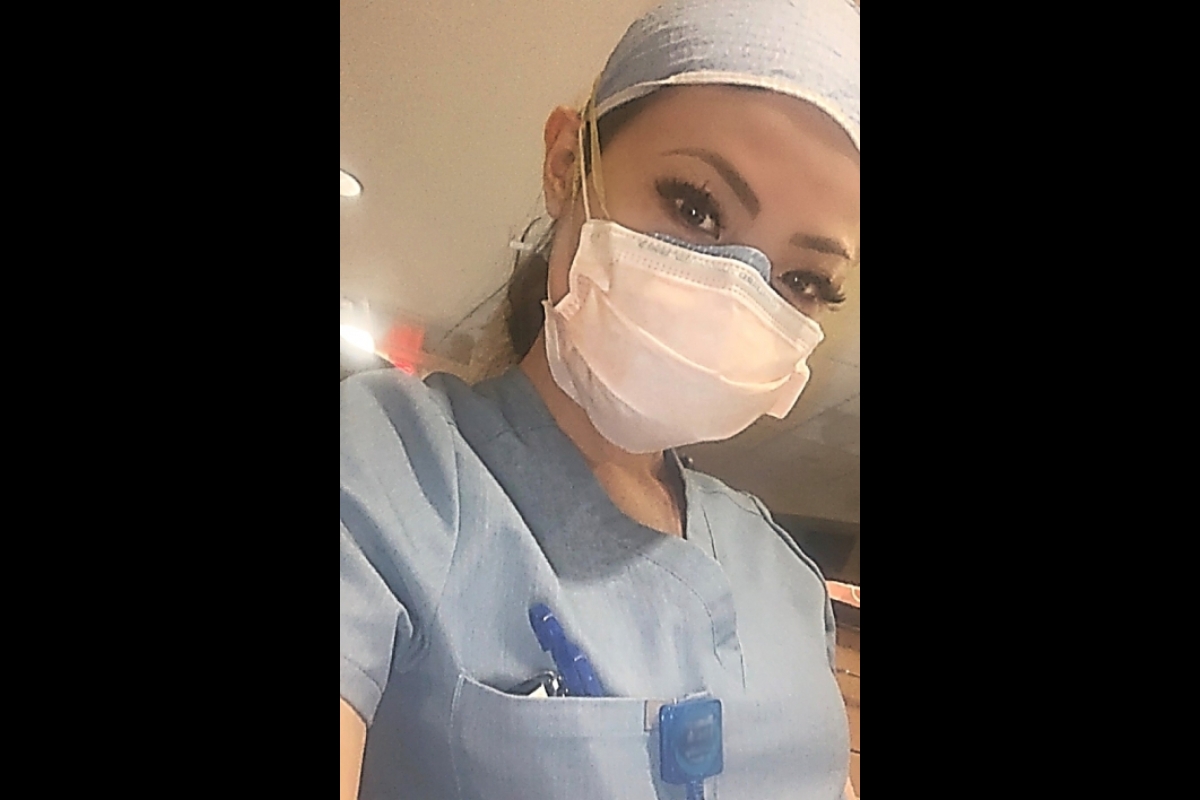Health care heroes by day, homework warriors by night

Edson College graduate students are in a unique position, caring for patients now as RNs, while also finishing up their advanced practice degrees.
It is not unusual for graduate students to work while pursuing their degrees. Such is the case for a majority of Doctor of Nursing Practice students in Arizona State University's Edson College of Nursing and Health Innovation.
But while other graduate students might help pay their way through school by teaching, or driving for Uber, these DNP students are working in health care. So when a health crisis arises like the current global pandemic, all 259 of them are in a unique position to make an impact now — before earning their diplomas.
“While they’re working toward their advanced nursing practice degrees, they’re contributing as nurses to meet the demand of our community by performing COVID-19 testing and caring for patients in need,” said Daniel Crawford, clinical assistant professor and director of Edson College’s DNP program.
Yuna Sakoma and Megan Nichols are two of those students. Both are set to graduate next month and both are currently working as registered nurses on the front lines in Phoenix but in different capacities.
Sakoma works in a Valley hospital, where her pulmonary floor was recently converted to a dedicated COVID-19 floor. She says they’re still trying to adjust to the changes and the ever-evolving guidelines they need to comply with.
“It’s definitely added more anxiety and discomfort just dealing with the unknown. I think it’s very stressful for nurses. But just because we feel fear doesn’t mean that we’re going to bend our responsibility and run away; this is our calling,” Sakoma said.
Nichols is another testament to that.
She left her full-time job at Phoenix Children’s Hospital to focus on school but when this crisis hit she knew she had to help. So now, she sets off every morning to her new pandemic position, screening essential workers for signs of COVID-19.
“It was hard watching fellow nurses, physicians and respiratory therapists and techs on the front lines just getting hammered. I have a skill set that can help and I have an even more developed skill set now in terms of policy and procedures that I’ve learned in the DNP program. So sitting here and doing nothing, I just couldn’t continue that,” said Nichols.
That advanced skill set is coming in handy as complex questions arise around constantly changing guidelines and best practices for adapting policies and procedures in response to the pandemic.
While neither Nichols nor Sakoma oversteps their current license as registered nurses, their colleagues are aware of their education and how close they are to graduation. As a result, they are often sought out for that additional expertise by their co-workers.
“It is interesting to be working as an RN but to have that knowledge base, so I’m trying to use it more in helping to look at certain protocols for what we do with symptomatic employees vs. asymptomatic employees or somebody who was possibly exposed vs. somebody who definitely was exposed. I’m trying to help more in that area than with the diagnostic-type questions that are coming my way even if I think I can answer them,” Nichols said.
Similarly, Sakoma also focuses on nonclinical areas where she can apply the advanced practice skills that keep her, her colleagues and patients safe.
Both nurses acknowledged the risks involved for themselves and all health care workers who are working day in and day out to save lives around the world. They also shared the unease they feel these days.
“It's just like a pit in our stomach just to get ready for work because we’re going to be exposed to it, we’re going to need to isolate ourselves from our loved ones. You know we can’t go see family. Some nurses are renting places away from the family so they won’t spread this infection from work,” Sakoma said.
And they’re lucky. Right now they’re in facilities with proper personal protective equipment or, PPE, to help shield them from infection.
Even so, Nichols is one of those nurses who has prepared for the possibility that she’ll be exposed. When she heads off to work she brings a go-bag with her, packed with extra clothes, toiletries and essentials in case she can’t go home for fear of spreading the virus to her fiance.
“It’s still a risk if you work in health care of any type that you can be exposed. I have a whole plan where I can go to a friend's place, who isn’t living there right now and I can quarantine there if I need to,” she said.
Between those stressful shifts, they turn back into students, working on finishing up their final coursework and their doctoral projects — for another few weeks at least.
Sakoma is earning a Family Nurse Practitioner, DNP, and Nichols a Pediatric Nurse Practitioner, DNP.
Edson’s nationally-ranked DNP program prepares students at the highest level of nursing education; it is three years long and requires hundreds of clinical hours on top of projects and other assignments.
“The education that these students are getting provides them a lot of value in understanding, diagnosing and treating disease processes," Crawford said. "Our students and graduates will be in an excellent position to ensure the highest quality health outcomes and to contribute to quality improvement measures immediately.”
For students like Sakoma and Nichols who are set to graduate in May, the bulk of those in-person clinical requirements were completed before the coronavirus required physical distancing measures and a shift to remote learning for the remainder of the semester.
Still, in light of all that is going on and because of the extraordinary position many of these students are in, Edson College is responding accordingly.
“As a program, we’ve really tried to convey the message to students that it’s going to be OK and we’re here to work through this with you,” Crawford said.
With graduation so close, there’s a mix of excitement including plans to watch the virtual ceremonies and anxiety about what comes next in life and in their careers, which are so tightly intertwined.
“Finally I’m at the end of three years of hard work, of schoolwork and working at the same time but it's just so chaotic at this moment that it just feels so unreal. I mean I’m excited to be done but at the same time I’m not sure what kind of a job I’m going to get as an NP in this pandemic,” Sakoma said.
Her hope is to find a position in an outpatient primary care clinic to start and then eventually move into dermatology.
For Nichols, the dream job revolves around serving pediatric patients in vulnerable communities, providing care and education while working toward building resilience.
More immediately though her focus is on the pandemic. She says this is not just going to go away and the health care community needs help in the form of widespread testing to get the upper hand.
“I hope we can ramp up testing and I know that will freak people out with the number of cases that go up but maybe then we can truly get a handle on this and see what it’s doing in the community. Because until we really understand what it’s doing, exactly how it's spreading and who is most at risk, we’re just chasing our tail.”
The one thing that is certain is that someday soon they, along with more than 70 of their graduating DNP classmates, will become nurse practitioners, filling a huge need within the health care system.
More Health and medicine

Fighting the fungus among us
It starts with a spore.When inhaled, spores of the coccidioides fungus can cause coccidioidomycosis — better known as valley…

$5 million gift to provide scholarships for new ASU medical school students
A $5 million gift from longtime Arizona State University donor Annette Beus and her family will help provide scholarships for 72…

The science of sibling dynamics: Why we fight, how we relate and why it matters
We have Mother’s Day, Father’s Day and even Grandparents’ Day. But siblings? Usually they get a hand-me-down sweatshirt and, with…





